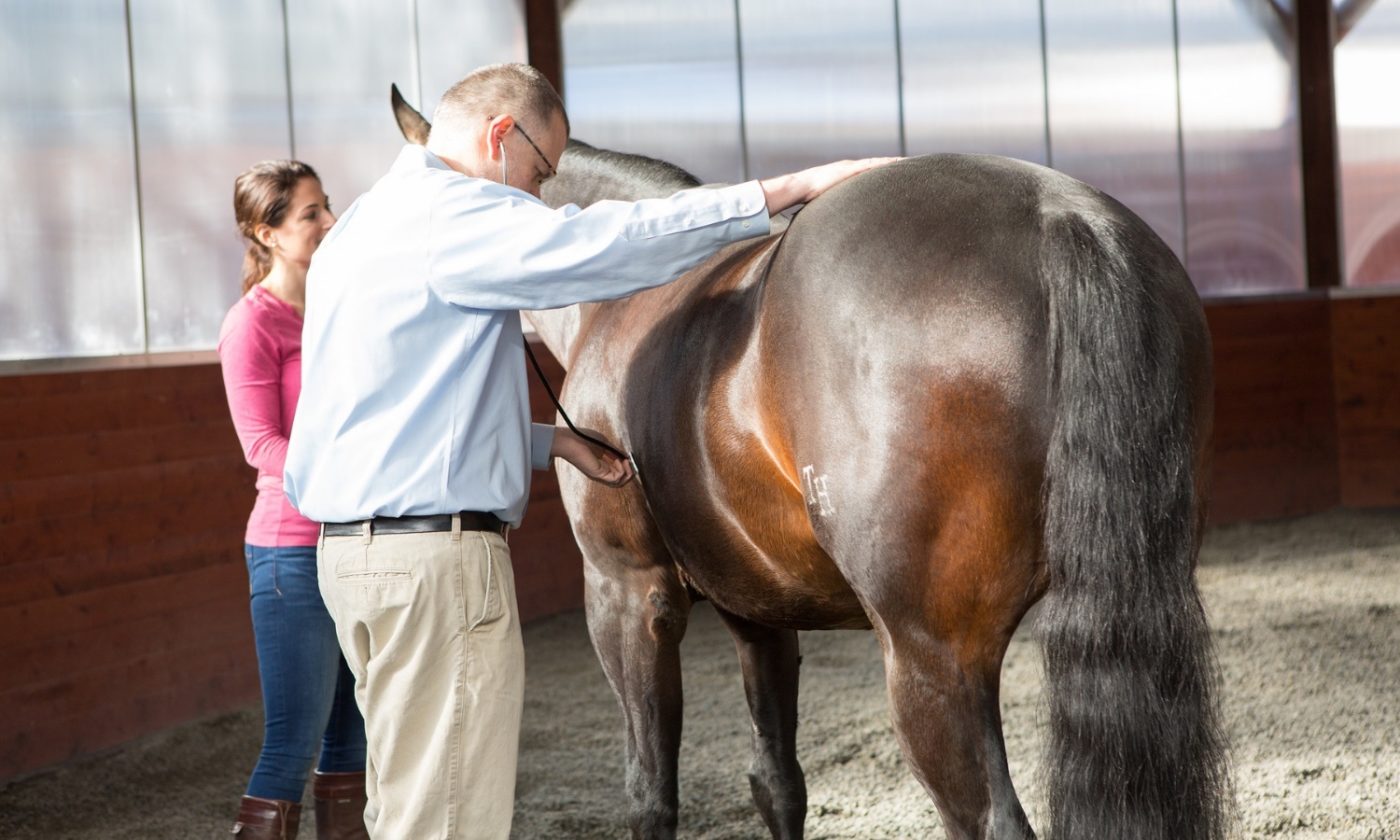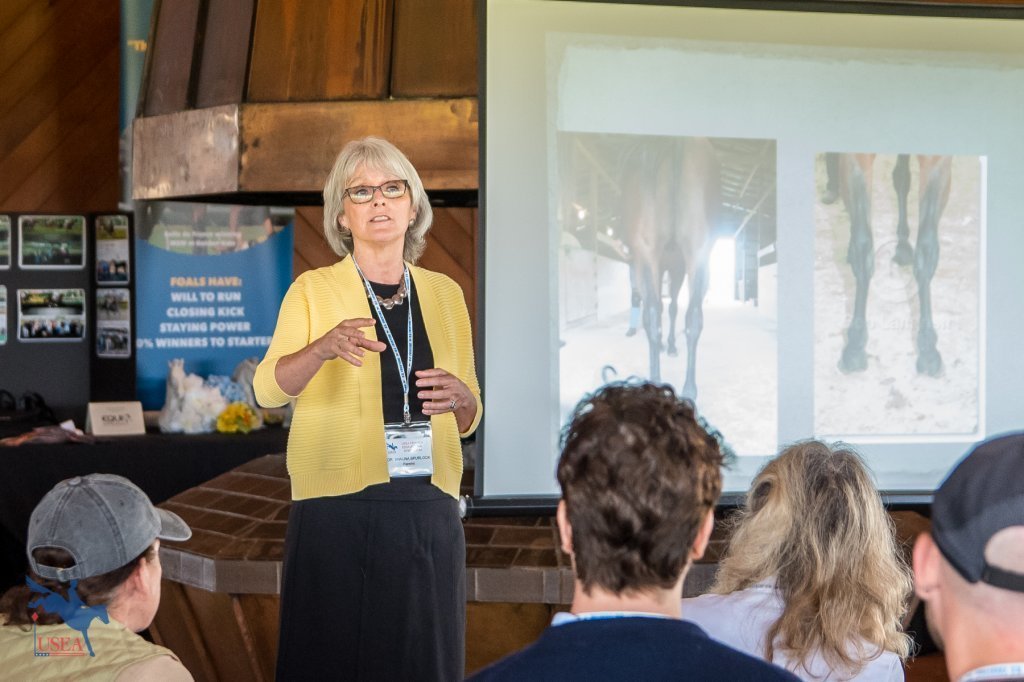

You’ve seen a horse you like. You’ve ridden it; you love it. The money’s right; you’ve agreed to buy it. What happens next?
Pre-purchase veterinary examinations are one of those topics that a roomful of horsey people could discuss - and argue amongst themselves about - for hours. For the amateur rider, that can be confusing and slightly alarming.
So, let’s simplify it. What is a pre-purchase examination, why are they done, and what should you expect?
Dr. Shauna Spurlock and her husband, Dr. Gary Spurlock, have decades of veterinary experience between them and run an equine veterinary practice in Lovettsville, Va.
Shauna says: “For some people, finding a horse and liking it is enough. They are willing to take whatever comes in the future. However, many people - and especially new buyers, or those who want to compete at a low level - want to find out what future risks there may be, as best as we can predict them.
“I think it is important to keep in mind that, as a purchaser, you like the horse and that you are happy with the way it performed when you rode it. That can get lost during pre-purchase examinations, which can sometimes seem like a hunting mission to find something wrong with a horse. That isn’t their purpose; we are just trying to identify what issues might crop up in the future for your new best friend. Then you can decide whether those issues are a problem for you - and they may not necessarily be so. They might be useful information but not a hindrance to your act of purchase.”

She thinks that the standard phraseology around a pre-purchase examination - “passing” or “failing” - is misleading.
“As a student, you can achieve a relatively low grade in an exam and still ‘pass’ it. Remember that. The expectation of 100% perfection is a misnomer,” Shauna says.
A pre-purchase examination should start with a conversation with the potential buyer about goals and expectations. The vet will assess how experienced that buyer is and who is helping them - is their trainer involved, for example?
“Then the real focus of the examination is on soundness: muscular, skeletal, eyes, heart, and lungs,” explains Shauna. “We will watch the horse be unloaded and see how it responds to its environment.
“We will watch it move on both hard and soft surfaces, in a straight line and on a circle, and perform flexion tests.
“It is up to the individual as to whether this is a mounted part to the examination or not, and there is a great deal of variation in that.
“We will also comment on disposition, especially if the horse is intended for a novice rider or a child. That is important for some things, but not necessarily the vet’s call,” she says.
The vet will ask the potential purchaser questions about what the horse felt like when they rode it at the vendor’s; was there anything that it did or that happened that they had any concerns about?
There is also what Shauna describes as “the really unpredictable part” - the subject of X-rays. A big-money, high-level event horse would almost undergo as many as 60 X-rays, but it is more a matter of personal choice at a more grassroots level.
“If a horse is clinically sound and destined for low-level competition, and the purchaser has confidence in the seller, he or she may not elect to have X-rays done,” she says.
If you do choose to have baseline X-rays, the front feet and hocks are the basic targets, and perhaps, especially if the horse has come out of racing, then the fetlocks.
“But we have to be wary of overinterpretation,” says Shauna. “If something shows up, it doesn’t necessarily mean it will bother the horse. And if there is nothing to be seen, it doesn’t mean nothing will occur!
“I encourage everyone who comes to have a horse ‘vetted’ for purchase to look at their own circumstances and that of the horse, their goals and intentions, and we will try to help them make a decision based on all of that.”
She makes a further very interesting point when she says: “The most common time that we see the results of a pre-purchase examination called into question is between 6-8 weeks and three months afterward. In that time, a horse may well have undergone a very significant regime change in terms of environment, workload and training program, feeding, shoeing, and so on. Could a problem be a result of those things?
“I advise people to be very knowledgeable about what the horse’s life, day-to-day, is like at the point that they fell in love with it, and to embrace that - make changes slowly. Transition is tough for both horse and rider and takes time.
“Pre-purchase examination is such a small part of what success that horse, and that combination of horse and rider, is going to have.”
The 2024 Defender Kentucky Three-Day Event is truly an eventing lover’s paradise with four full days of competition, vendors galore, opportunities to meet some of the sport’s greatest riders face-to-face, and so much more. For a seasoned Kentucky veteran, hopping over to the Kentucky Horse Park for the fun feels easy enough, but attending Kentucky might feel a bit overwhelming for first-timers. We chatted with USEA members from all over the country to get their favorite Kentucky tips to share with you. Check them out here!
There are some familiar names and new faces on the five-star roster for this year's Defender Kentucky Three-Day Event. Which horses have had recent top placings? Which riders have seen success at the Kentucky Horse Park in previous years? Which horse is called "Grandpa" by his rider and which one was purchased for $1?
The United States Eventing Association, Inc. (USEA) is thrilled to announce Canter Culture as a “Silver Sponsor for the USEA American Eventing Championships” taking place at the Kentucky Horse Park in Lexington, Kentucky, Aug. 27-Sept. 1.
If you’re a new team setting out to compete in the 2024 USEA Intercollegiate and Interscholastic Eventing Championships in just a couple of weeks, preparing for the “happiest horse trial” in the U.S. may seem a bit daunting. With five components to the Spirit Award contest that require creativity and cohesion between team members, there is a lot that goes into preparing and packing to leave for the event.